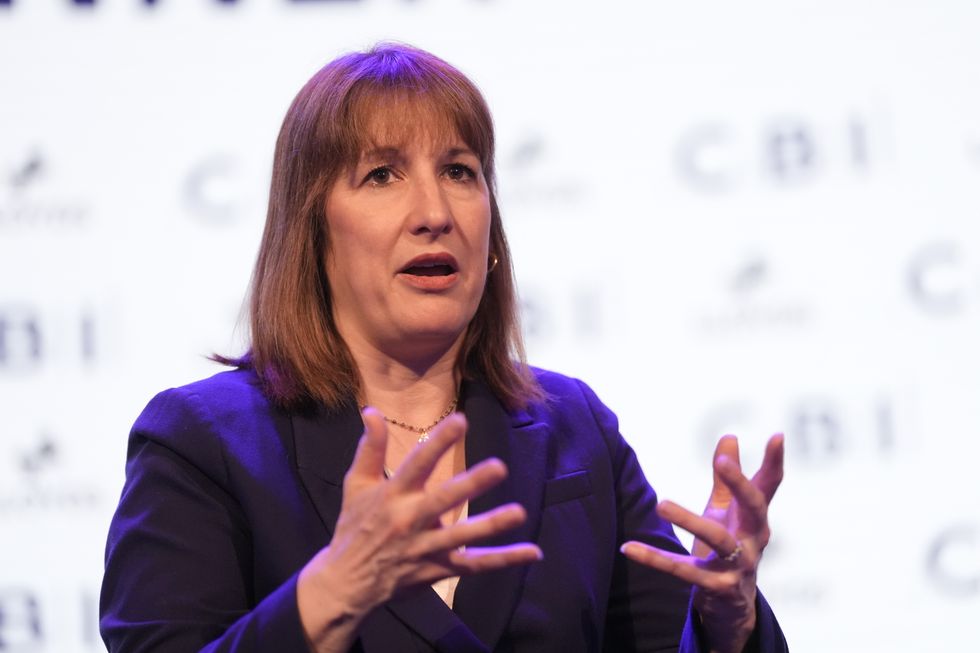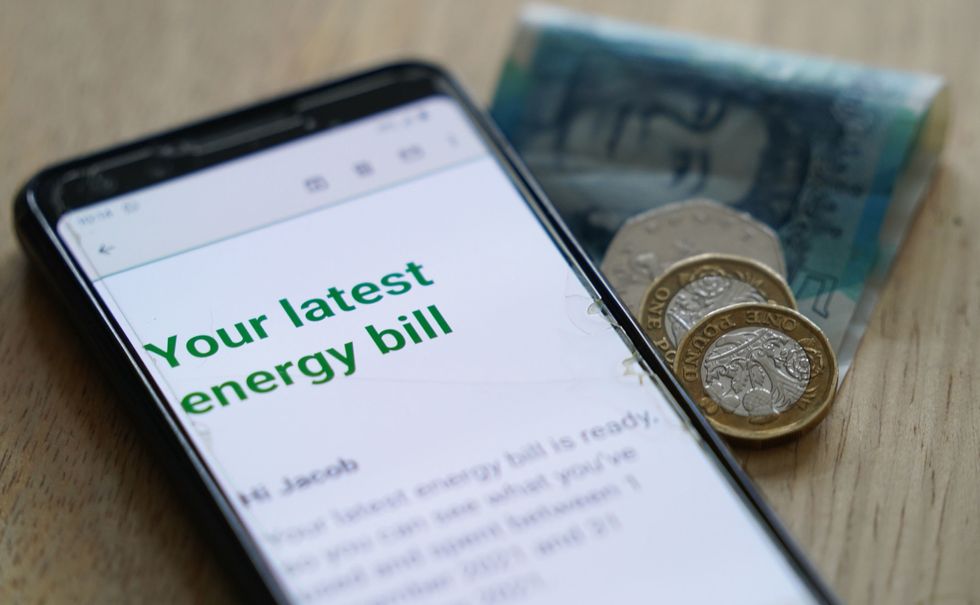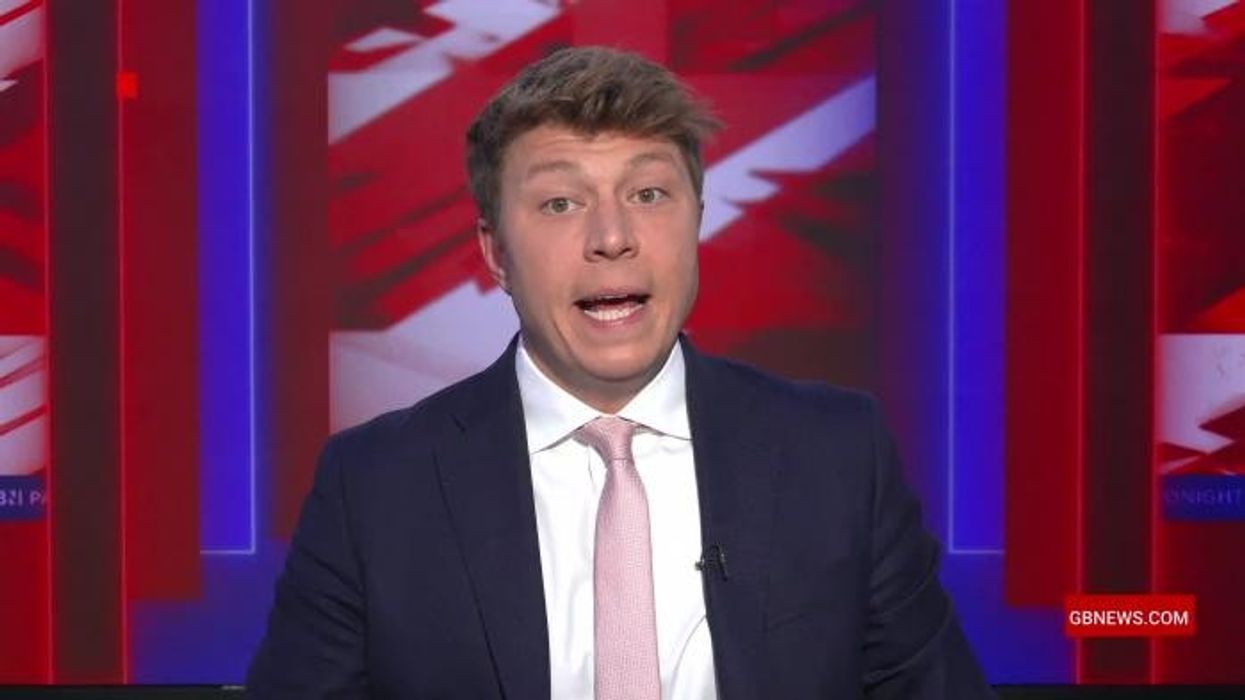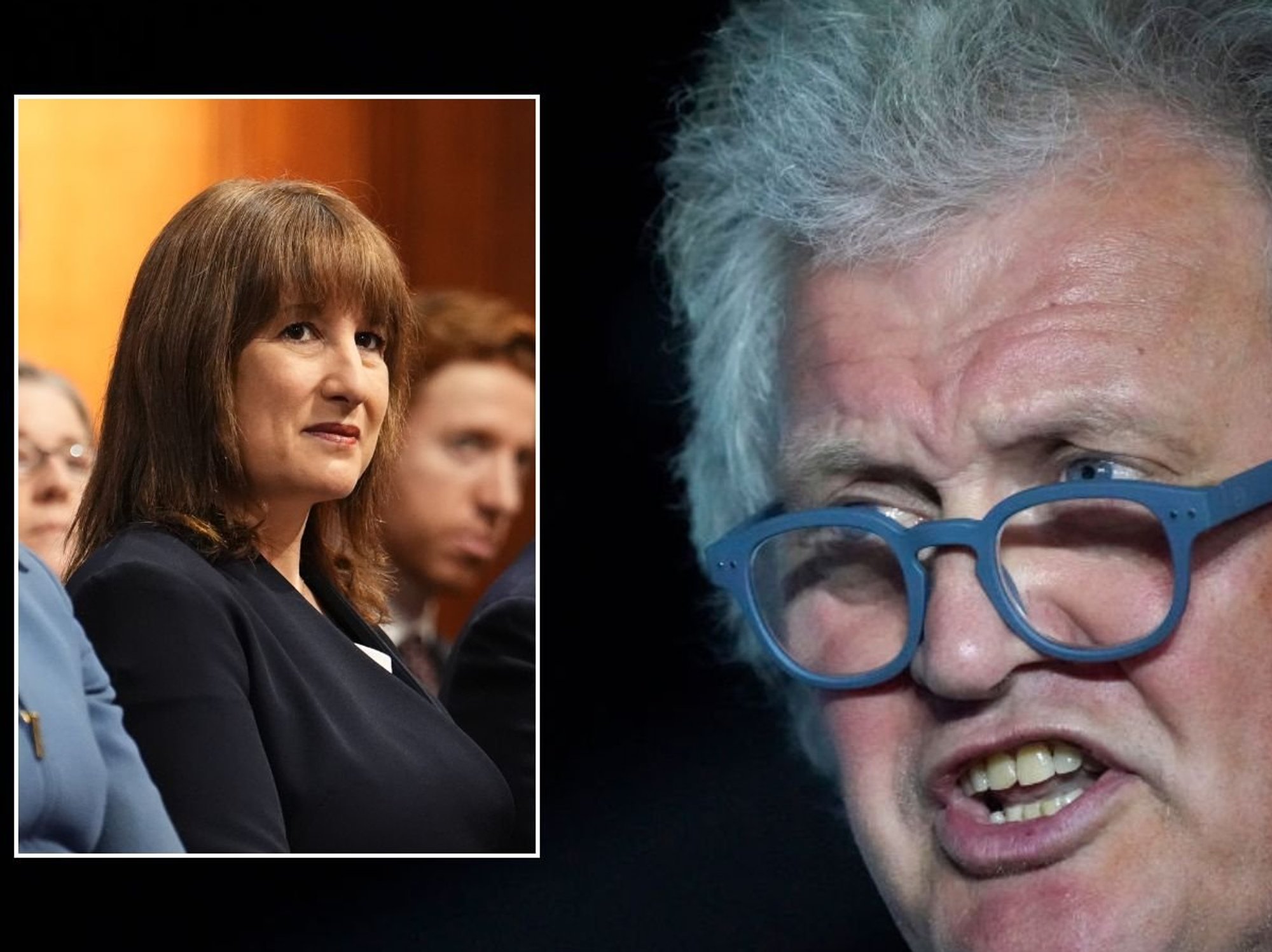Rachel Reeves refuses to rule out tax rises in Autumn Budget as Treasury faces £24bn shortfall

The Chancellor signalled her three-year spending review would unleash funding for infrastructure projects, from renewables to nuclear energy
Don't Miss
Most Read
Latest
Chancellor Rachel Reeves has declined to rule out implementing further tax increases this autumn, despite mounting concerns from business leaders.
Speaking at the Confederation of British Industry's annual dinner on Thursday evening, the Chancellor was asked four times by CBI president Rupert Soames to provide reassurance that families and businesses would not face higher taxes.
"I'm not going to say that I'm not going to take any tax measures in the next four years," Reeves told the audience of business leaders.
When pressed repeatedly, she could only commit to avoiding a repeat of last autumn's record £40bn tax raid.
She said: "I'm not going to be able to write all four years of budgets sitting here this evening," leaving the door open for potential tax rises as she prepares to unveil Whitehall spending plans for the next three years.
Her caution comes amid fresh warnings that she may need to raise up to £24bn to fund recent policy pledges and mitigate the economic hit from rising global tariffs.
The analysis from investment bank JP Morgan suggests Reeves is increasingly constrained by spending commitments made by Sir Keir Starmer.
These commitments include proposals to restore Winter Fuel Payments to more pensioners and speculation that the two-child cap on benefits will be lifted.
Allan Monks, chief UK economist at JP Morgan said these moves, widely seen as an attempt to counter the threat from Nigel Farage's Reform UK following their gains in recent local elections, could cost up to £5bn annually by the end of the decade.
The bank also cited pressure from Donald Trump's trade war, with an expected £2.4bn boost from trade deals failing to offset a £7.3bn hit from higher tariffs.
Pressure is mounting on Reeves from within her own party, with Cabinet colleagues pushing for increased departmental funding ahead of Wednesday's Spending Review.

Deputy Prime Minister Angela Rayner is among those urging the Chancellor to release more money for Government departments.
A leaked memo from Rayner's department to the Treasury ahead of the Spring Statement has intensified tensions. The document detailed potential tax rises that could have avoided spending cuts to balance the budget, highlighting divisions within Labour over fiscal policy.
The Chancellor faces a delicate balancing act between maintaining fiscal discipline and satisfying demands from Labour's left wing for increased public spending.
This internal pressure adds to the complexity of her economic decision-making as she prepares to set out spending plans. Business leaders have expressed alarm about the impact of Labour's workers' rights overhaul on economic growth.
A survey by the Institute of Directors published on Friday revealed that over seven in 10 business leaders believed the upcoming Employment Rights Bill would negatively affect UK economic growth.
 Older britons are concerned about the rising tax burden | GETTY
Older britons are concerned about the rising tax burden | GETTYThe Chancellor acknowledged growth challenges, stating that the economy was "turning the corner" whilst admitting that growth remained too low.
She said: "None of our countries are growing at the rate that we used to or the rate that we want to. All of us are struggling with living standards not improving and our citizens are becoming restless."
Energy costs remain a significant concern for businesses, with factory power prices in Britain approximately 50 per cent higher than in Germany and France, and four times more expensive than in the US.
The Commons business select committee warned on Friday that high energy prices were holding back growth, urging ministers to address the issue in the upcoming industrial strategy.

Reeves hinted that the Government was preparing support measures for businesses struggling with energy costs
| PAReeves hinted that the Government was preparing support measures for businesses struggling with energy costs.
She said: "I know that one of the questions that we need to answer is how we're going to make energy more affordable, particularly for some of our most intensive energy-using businesses where the price differential with other countries around the world is just too acute for many to be competitive.
"And so that's a question we will answer in the industrial strategy in a few weeks."











